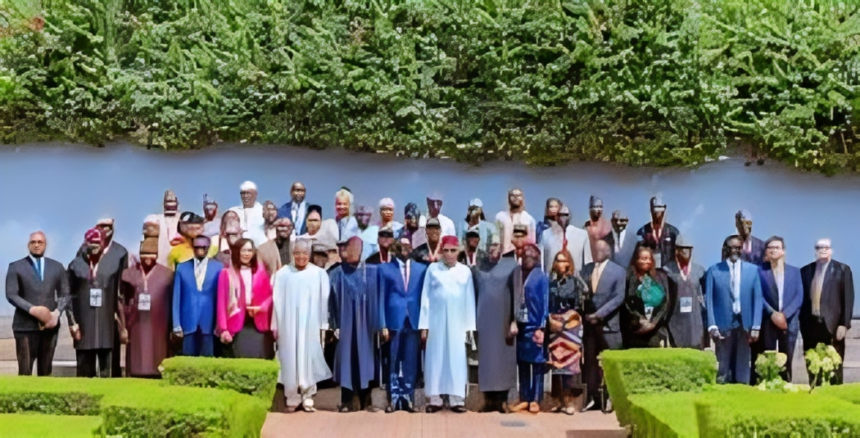President Bola Ahmed Tinubu has officially inaugurated the Nigerian Youth Academy (NiYA) as part of the federal government’s comprehensive strategy to tackle Nigeria’s low human capital index, high youth unemployment, and other socio-economic challenges. The academy was formally launched at the Presidential Villa in Abuja, with Vice President Kashim Shettima standing in for the President during the event.
The unveiling of NiYA coincides with a period of shifting employment trends in Nigeria. According to the National Bureau of Statistics, the nation’s unemployment rate declined to 4.3% in the second quarter of 2024, down from 5.3% in the first quarter. However, in a year-on-year comparison, unemployment has slightly increased by 0.1 percentage point relative to the same period in 2023.
In his speech, Shettima reaffirmed the federal government’s unwavering commitment to equipping Nigerian youth with critical skills to help them remain competitive in the rapidly evolving global economy. He highlighted that the academy is designed to provide cutting-edge training in digital literacy, technical expertise, entrepreneurship, and the creative industries, enabling young Nigerians to emerge as valuable contributors to the global workforce.
He pointed out that with a median age of 17, Nigeria has one of the youngest populations worldwide—a demographic structure that presents both significant potential and pressing challenges. As the country moves toward becoming the third most populous nation by 2050, with the majority of its people under 21, he emphasized the urgent need for strategic interventions to channel youthful energy toward national progress.
“NiYA is a decisive response to Nigeria’s low human capital index, rising unemployment, and other barriers to sustainable development,” Shettima stated, assuring that the academy aims to train and empower millions of young Nigerians over the next two years.
He outlined three fundamental pillars that would drive NiYA’s mission—education and skills acquisition, economic empowerment, and leadership and civic participation. According to him, these focus areas are designed to provide young Nigerians with the necessary resources and expertise to transform their potential into tangible economic contributions.
Beyond vocational training, Shettima announced that the government would extend financial support to young entrepreneurs through programs such as the Youth Investment Fund and the Presidential Initiative for Youth Enterprise Clusters. These initiatives will offer access to funding, mentorship, and other essential resources. Furthermore, he disclosed plans to establish a National Youth Development Bank, which will serve as a financial institution dedicated to supporting start-ups and small businesses owned by young Nigerians.
He acknowledged the persistent struggles confronting Nigerian youth, including limited access to employment, learning deficiencies, and a human capital index ranking that lags behind expectations. “These figures are more than just statistics; they represent lives interrupted, aspirations delayed, and futures left in limbo,” he remarked, emphasizing that the Nigerian Youth Academy is committed to reversing these adverse trends.
As part of the launch, the Minister of Finance and Coordinating Minister of the Economy, Wale Edun, announced that six members of NiYA—each representing a different geo-political zone—were awarded a start-up grant of N1 million. This financial assistance aims to help them kickstart their business ventures and establish sustainable livelihoods as self-employed professionals.
Edun highlighted the importance of equipping young Nigerians not only with marketable skills but also with the financial backing necessary to turn their ideas into reality. He urged the grant recipients to fully seize this opportunity, noting that the academy’s long-term goal is to cultivate a generation of self-reliant, highly skilled, and globally competitive professionals.
With NiYA’s launch, the federal government has positioned skills development and youth entrepreneurship at the core of its economic policy, aiming to close the gap between education and employment while addressing the country’s pressing human capital challenges.








